第25章 CHAPTER XVII.(2)
They were more brutal, without refinement, without ornament; but they were short, and generally followed by periods of irritation without cause, irritation fed by the most trivial pretexts. We had spats about the coffee, the table-cloth, the carriage, games of cards,--trifles, in short, which could not be of the least importance to either of us. As for me, a terrible execration was continually boiling up within me. I watched her pour the tea, swing her foot, lift her spoon to her mouth, and blow upon hot liquids or sip them, and I detested her as if these had been so many crimes.
"I did not notice that these periods of irritation depended very regularly upon the periods of love. Each of the latter was followed by one of the former. A period of intense love was followed by a long period of anger; a period of mild love induced a mild irritation. We did not understand that this love and this hatred were two opposite faces of the same animal feeling. To live thus would be terrible, if one understood the philosophy of it. But we did not perceive this, we did not analyze it. It is at once the torture and the relief of man that, when he lives irregularly, he can cherish illusions as to the miseries of his situation. So did we. She tried to forget herself in sudden and absorbing occupations, in household duties, the care of the furniture, her dress and that of her children, in the education of the latter, and in looking after their health. These were occupations that did not arise from any immediate necessity, but she accomplished them as if her life and that of her children depended on whether the pastry was allowed to burn, whether a curtain was hanging properly, whether a dress was a success, whether a lesson was well learned, or whether a medicine was swallowed.
"I saw clearly that to her all this was, more than anything else, a means of forgetting, an intoxication, just as hunting, card-playing, and my functions at the Zemstvo served the same purpose for me. It is true that in addition I had an intoxication literally speaking,--tobacco, which I smoked in large quantities, and wine, upon which I did not get drunk, but of which I took too much. Vodka before meals, and during meals two glasses of wine, so that a perpetual mist concealed the turmoil of existence.
"These new theories of hypnotism, of mental maladies, of hysteria are not simple stupidities, but dangerous or evil stupidities.
Charcot, I am sure, would have said that my wife was hysterical, and of me he would have said that I was an abnormal being, and he would have wanted to treat me. But in us there was nothing requiring treatment. All this mental malady was the simple result of the fact that we were living immorally. Thanks to this immoral life, we suffered, and, to stifle our sufferings, we tried abnormal means, which the doctors call the 'symptoms' of a mental malady,--hysteria.
"There was no occasion in all this to apply for treatment to Charcot or to anybody else. Neither suggestion nor bromide would have been effective in working our cure. The needful thing was an examination of the origin of the evil. It is as when one is sitting on a nail; if you see the nail, you see that which is irregular in your life, and you avoid it. Then the pain stops, without any necessity of stifling it. Our pain arose from the irregularity of our life, and also my jealousy, my irritability, and the necessity of keeping myself in a state of perpetual semi-intoxication by hunting, card-playing, and, above all, the use of wine and tobacco. It was because of this irregularity that my wife so passionately pursued her occupations. The sudden changes of her disposition, from extreme sadness to extreme gayety, and her babble, arose from the need of forgetting herself, of forgetting her life, in the continual intoxication of varied and very brief occupations.
"Thus we lived in a perpetual fog, in which we did not distinguish our condition. We were like two galley-slaves fastened to the same ball, cursing each other, poisoning each other's existence, and trying to shake each other off. I was still unaware that ninety-nine families out of every hundred live in the same hell, and that it cannot be otherwise. I had not learned this fact from others or from myself. The coincidences that are met in regular, and even in irregular life, are surprising. At the very period when the life of parents becomes impossible, it becomes indispensable that they go to the city to live, in order to educate their children. That is what we did."Posdnicheff became silent, and twice there escaped him, in the half-darkness, sighs, which at that moment seemed to me like suppressed sobs. Then he continued.